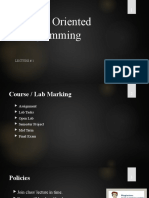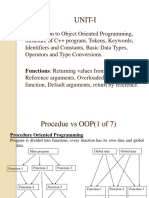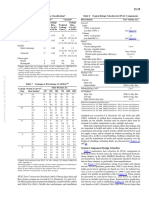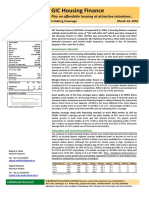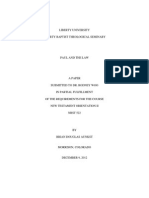0% found this document useful (0 votes)
51 views13 pagesTheory Based Question Answers of C
C++ is a general-purpose programming language that extends C by introducing object-oriented programming features like classes and inheritance. Key features of C++ include support for both procedural and object-oriented programming, a rich standard library, and mechanisms for exception handling and memory management. The document also explains various concepts such as tokens, data types, control statements, functions, and the differences between call by value and call by reference.
Uploaded by
sahilkamboj12312Copyright
© © All Rights Reserved
We take content rights seriously. If you suspect this is your content, claim it here.
Available Formats
Download as DOCX, PDF, TXT or read online on Scribd
0% found this document useful (0 votes)
51 views13 pagesTheory Based Question Answers of C
C++ is a general-purpose programming language that extends C by introducing object-oriented programming features like classes and inheritance. Key features of C++ include support for both procedural and object-oriented programming, a rich standard library, and mechanisms for exception handling and memory management. The document also explains various concepts such as tokens, data types, control statements, functions, and the differences between call by value and call by reference.
Uploaded by
sahilkamboj12312Copyright
© © All Rights Reserved
We take content rights seriously. If you suspect this is your content, claim it here.
Available Formats
Download as DOCX, PDF, TXT or read online on Scribd
/ 13




















